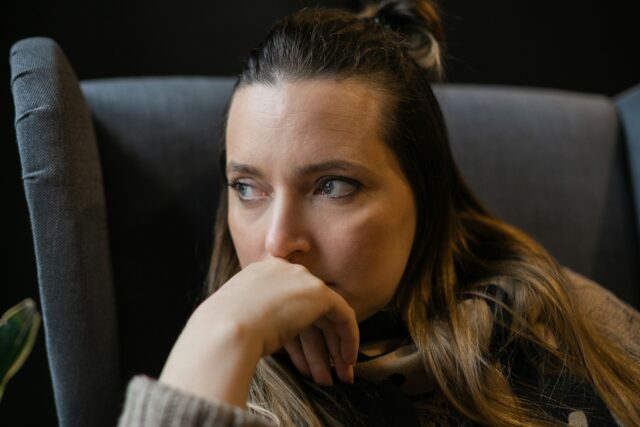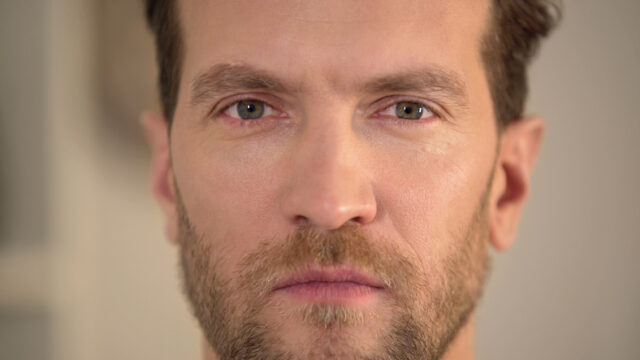Not everyone who’s struggling with depression looks like they’re falling apart.

In fact, a lot of people become experts at hiding it behind smiles, sarcasm, productivity, or just being “fine.” These masks can be so convincing that even close friends and family miss the signs. However, underneath them, there’s often pain, exhaustion, and deep disconnection. Here are some common masks people wear to keep their depression away from the prying eyes of the world.
1. The “I’m just really busy” mask

One of the easiest ways to avoid dealing with difficult feelings is to stay constantly booked. People with depression might fill every hour with work, errands, or obligations—not because they’re thriving, but because stillness feels unbearable.
Being busy gives them an excuse to avoid emotional check-ins. It lets them keep their distance from other people and themselves. From the outside, it looks like they’ve got everything under control, which makes it even harder for anyone to see they’re not okay.
2. The “I’m always the funny one” mask

Humour can be a powerful shield. People who are struggling often become the class clown, the quick-witted texter, or the one who always lightens the mood. They deflect with jokes so no one looks too closely. Behind the humour is usually someone trying not to crumble. They make everyone laugh to keep from crying themselves. Because their energy is entertaining, people rarely think to ask if they’re actually hurting inside.
3. The “I’m fine, really” mask

When someone says they’re fine on autopilot, over and over, it usually means they’ve trained themselves to suppress. They’ve learned that expressing pain often makes other people uncomfortable—or worse, gets brushed off—so they keep it surface-level. This mask is especially common in people who feel like a burden. They’ll smile, nod, and keep it moving, even when they’re barely holding it together. It becomes their default, and after a while, people stop asking twice.
4. The “I’ve got it all together” mask

Perfectionism can hide a lot of pain. People with this mask stay polished, punctual, and productive, often out of fear that letting anything slip will expose how fragile they really feel inside. They’re the ones who keep the house spotless, hit every deadline, and never let you see them unravel. Of course, that constant upkeep takes a toll. Behind the scenes, they’re often exhausted, numb, and desperate for a break they don’t feel allowed to take.
5. The “I’m just tired” mask

Depression can make everything feel heavy—physically and emotionally. But instead of saying they’re low or struggling, many people will just say they’re tired. It’s more acceptable, and it doesn’t require further explanation. This mask works because it’s half true. They *are* tired—tired from pretending, from pushing through, from feeling flat all the time. However, it’s not the kind of tired sleep fixes. It’s the kind that lingers, quietly draining them day by day.
6. The “overachiever” mask

Some people deal with their pain by pouring themselves into success. They collect achievements, aim high, and do more than expected—not because they feel good about themselves, but because they’re trying to outrun the voice that says they’re not enough. From the outside, they seem unstoppable. But internally, they’re often burned out, emotionally disconnected, and secretly afraid that if they stop achieving, people will see the emptiness they’re working so hard to hide.
7. The “caretaker” mask

Taking care of other people can become a full-time distraction from dealing with yourself. People with depression sometimes focus all their attention on everyone else—checking in, giving advice, making sure other people are okay—so they never have to look inward. It feels useful, even meaningful. But the caretaker mask often leaves them depleted and unnoticed. They make sure no one else feels what they’re feeling, and in doing so, they keep their own pain tucked far beneath the surface.
8. The “loner by choice” mask

Withdrawing is a big part of depression, but people often reframe it as something intentional. They’ll say they “just need space” or “prefer to be alone” to avoid the vulnerability of admitting they feel isolated or unwanted. It can be hard to spot because it sounds confident, even self-aware, but underneath that mask is often someone who desperately wants connection—they just don’t know how to ask for it without feeling ashamed or exposed.
9. The “nothing bothers me” mask

Emotional flatness can look like chill or detachment. People with depression might act like they’re unbothered, unfazed, or indifferent—when really, they’ve just shut down to cope. They don’t react, not because they’re at peace, but because feeling anything feels too risky. That emotional numbness can look like resilience on the surface, but it’s often a sign that someone has disconnected to survive.
10. The “constant helper” mask

Some people hide their depression by always being the reliable one. The helper. The fixer. They jump in when other people need support, not just out of kindness, but to avoid looking at their own pain. This mask is tricky because it earns praise. But it often leads to resentment, burnout, and loneliness. They rarely ask for help in return, and over time, it becomes a way to stay invisible while still appearing strong.




